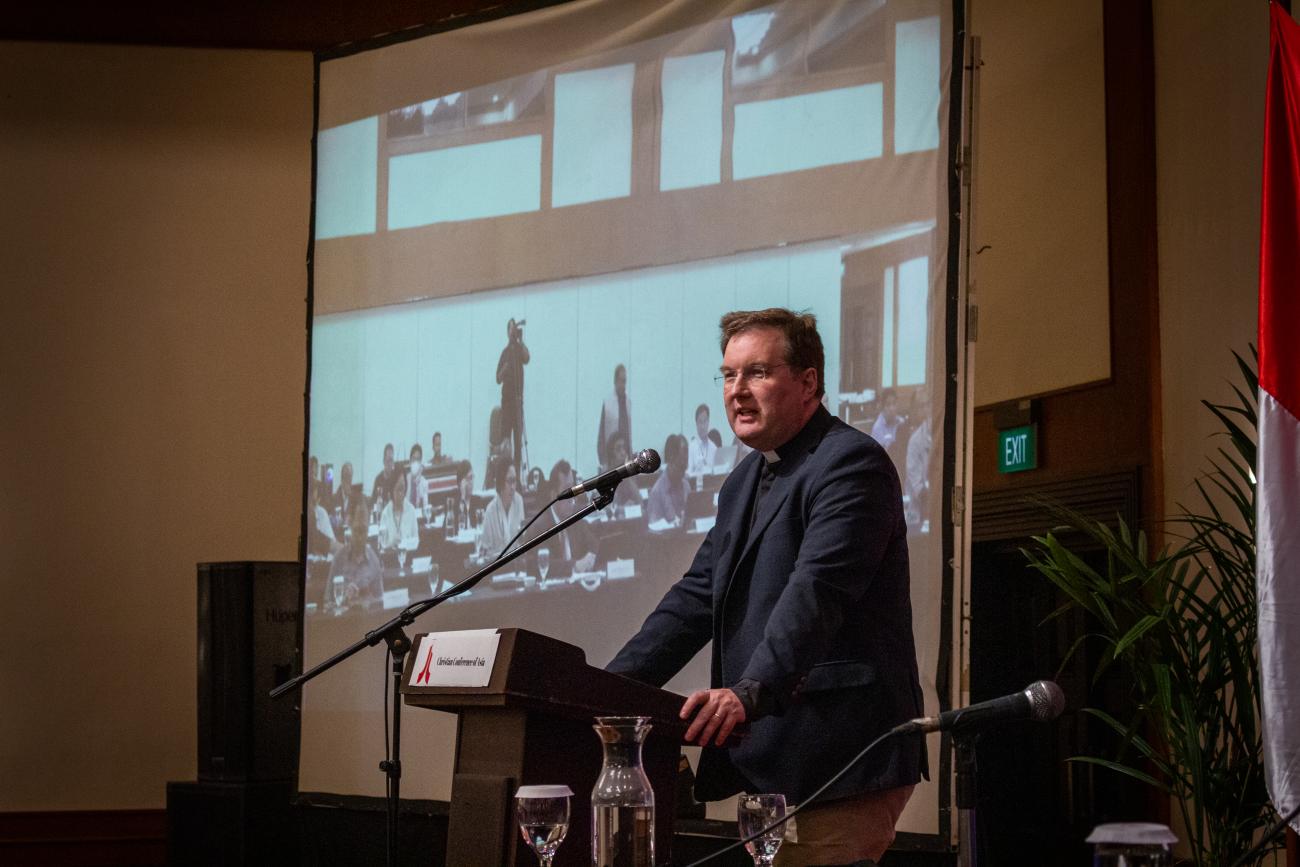“Diakonia must be inclusive—not merely doing acts of kindness to others from a position of wealth or privilege,” says Rev. Matthew Ross of WCC at ACELC

Rev Mathew Ross (WCC) delivers the ACELC Thematic Address on 'Ecumenical Diakonia – Called to Transformation'
Jakarta, Indonesia: At the Asian Church and Ecumenical Leaders’ Conference (ACELC), Rev. Matthew Ross, Programme Executive for Diakonia and Capacity-building with the World Council of Churches (WCC), delivered a presentation on ‘Ecumenical Diakonia: Called to Transformation’.
Rev. Ross stated, “Diakonia must be inclusive—not merely doing acts of kindness to others from a position of wealth or privilege, but recognising that human beings are equal in God’s sight, and that diaconal service must involve and engage the users rather than treating them as passive recipients from whom gratitude is anticipated.”
While outlining the principles of ecumenical diakonia, Rev. Ross, a Scottish theologian said, “Witness and service are crucial for the Church: mission, diakonia, and ecumenism belong together and to the heart of what it means to be the Church. The Church has a duty and calling to advocacy and service. We must strive to make a better society for all—as advocates for peace and reconciliation, countering hatred, and working for human flourishing.”
Rev. Ross further stated, “Diakonia is church-related social care—an integral part of Christian service which we in faith are called to do. Faith is our response to God’s grace, so sustained by worship, prayer, and the Word of God, we are called to live out God’s grace and love in loving neighbour as self. Yet, we cannot do this alone. We need to work in collaboration with our Christian sisters and brothers. In working together, we increase our capacity and maximise the benefits for those who need them most. Hence, ecumenical diakonia.”
Rev. Ross presented an overview of the document adopted by the WCC Central Committee, ‘Ecumenical Diakonia: Called to Transformation’, jointly published by the WCC and ACT Alliance, and also spoke about the work of the WCC in promoting diakonia.
Rev. Tara Tautari from the Methodist Church in New Zealand asked about the position of the document on bilateral and multilateral diakonia, given the danger of power imbalances of the bilateral diakonia.
Juliate Malakar from the Christian Commission for Development in Bangladesh and Karmila Jusup from the Mission21 Asia Regional Office sought Rev. Ross’ opinion on how churches could respond to the climate crisis through diakonia.
The second part of the ACELC jointly organised by the CCA and WCC was mainly focusing on the capacity-building of Asian churches in strengthening diakonia at every level of churches’ mission and witness.











